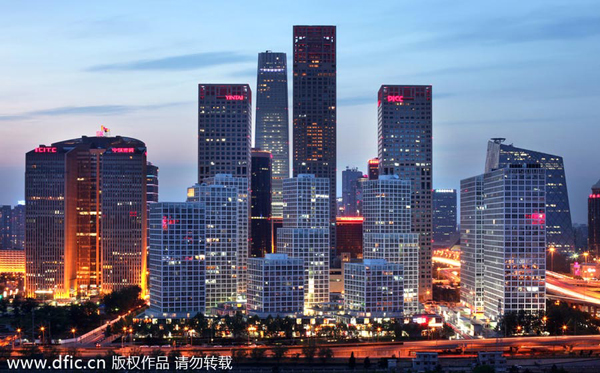 |
|
Night view of skyscrapers and high-rise buildings of Jianwai Soho and Yintai Centre in CBD in Beijing, China. [Photo/IC] |
Policymakers had previously signalled that they were comfortable with slowing net growth in the name of economic restructuring away from capital-intensive manufacturing toward services, but if restructuring attempts set off an economy-wide slide, Beijing would find its options increasingly constrained.
External factors contributed to the timing of the decision, economists said, such as deflationary pressures from a recent collapse in energy prices and easing moves by other foreign central banks, though domestic issues were still more important.
"The recent wave of central bank easing may have played a role, but we think the above domestic factors are the main reasons behind the RRR cut today," wrote Zhu Haibin of J.P. Morgan, adding that the timing was not surprising, given rising systemic cash demand in the run-up to the week-long Chinese New Year holiday in mid February.
However, the weak impact of previous stimulus measures has some worried that liquidity tools are losing their effectiveness in China, given that the volume of debt required to produce a unit of GDP is steadily rising, given endemic industrial overcapacity and entrenched economic inefficiencies in the state sector.
The bank injected an estimated 644.5 billion yuan into the system through medium-term loan facilities in late 2014, without producing much in the way of stimulation, and swamping the system with money it cannot digest carries other risks.
Previous easing moves are already credited with setting off a massive leverage-fuelled rally in Chinese stock markets, which has become as much a cause for concern as celebration, as it highlights the risk that easing would simply reinflate asset bubbles in stocks, real estate and industrial housing that regulators have been trying to let the air out of for years.
China's economic growth slowed to 7.4 percent in 2014 - the weakest in 24 years - from 7.7 percent in 2013.
Analysts polled by Reuters in January expect economic growth to sag further this year to around 7 percent.
